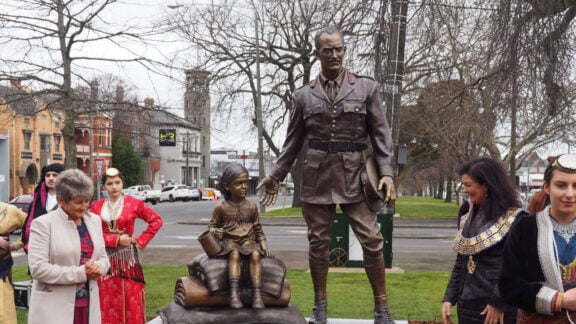The significance of 25 March 1821 cannot be exaggerated; it altered the course of the world.
On that day, the brave people of Greece, despite their poverty, revolted against the oppressive Ottoman colonial rule that had subjugated them for 400 years.
It proved that even the most oppressed and marginalised could achieve freedom and self-determination, through courage and perseverance.
The Greeks’ uprising, in what was an insignificant corner of the vast Ottoman empire, ignited a spark that spread like wildfire and set the world ablaze. It was the first-ever national liberation movement in Europe, a momentous occasion that marked the beginning of global anti-colonial movements.
The Greek Revolution was also the first time that humanitarian intervention based on international law on human rights began.
It was the first struggle to enlist foreign support from non-Greeks, and it was the first time media was used to sway citizens to support the Greeks in their quest for freedom.
A London Committee of philhellenes was set up and included abolitionists, Irish republicans, liberals, radicals and evangelists. Renowned philhellenes included Lord Byron, and philosopher, abolitionist and anti-imperialist, Jeremy Bentham.
Historian Gary J. Bass writes; “Byron and Bentham, the two most important London Committee members where not just against the Tory government, but the British Empire.”
In Chios, the Ottomans sent a fleet to both quell rebels on the Island of Chios and to wipe out the population. No less than 30,000 civilians were slaughtered, women subjected to mass rapes and 50,000, mainly Greeks, were carried off to slavery. In Morea, Peloponnese, Ibrahim Pasha, the Egyptian naval commander, oversaw the mass deportation of Greek slaves, and subjected the population to slaughter, mass rape, and famine. It was through these monstrous acts that the international community came to realise the need to protect human rights.
The calls by citizens of democratic nations for their governments to support foreign causes based on international law on human rights in Bosnia, Apartheid South Africa, Angola, Republic of Congo, Cambodia, Timor Leste and Myanmar can be traced back to the 1821 Greek War of Independence.
African American James Williams, from Baltimore joined the Greek revolutionary navy and fought at the war’s defining and bloody naval Battle of Navarino. In turn, John Zachos and Photius Fisk, orphans of the Greek War of Independence became abolitionists in America.
It is difficult after 200 years to underestimate the impact the Greek Revolution had on the modern world. As the anniversary of this pivotal event approaches, the Greek Diaspora in Australia will come together to celebrate and honour their forefathers’ sacrifice. They will gather in remembrance and rejoice in jubilation, offering panegyric exultations to commemorate the day when the Greeks rose for freedom and became a shining beacon of hope and inspiration for all subjugated peoples across the globe.









